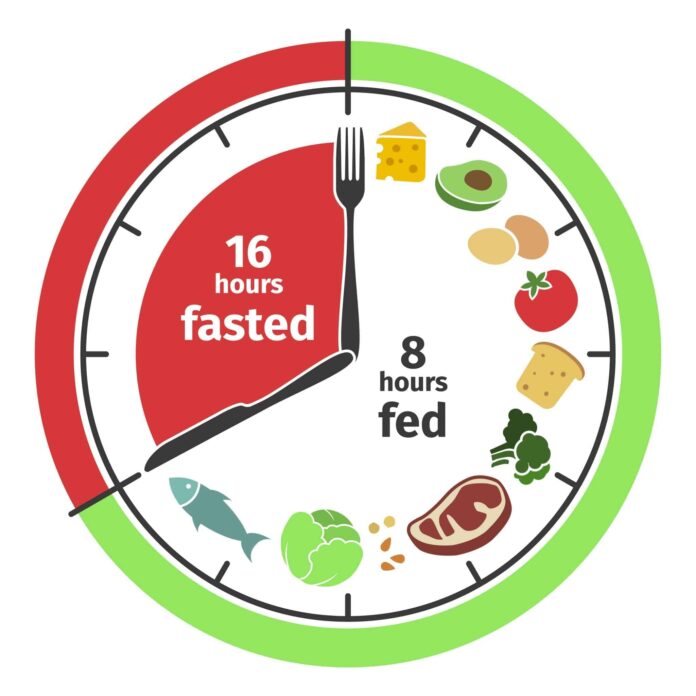Intermittent Fasting is an eating pattern that cycles between periods of fasting and eating.
It doesn’t specify which foods you should eat but rather when you should eat them.
In this respect, it’s not a diet in the conventional sense but more accurately described as an eating pattern.
Common intermittent fasting methods involve daily 16-hour fasts or fasting for 24 hours, twice per week.
Fasting has been a practice throughout human evolution. Ancient hunter-gatherers didn’t have supermarkets, refrigerators or food available year-round. Sometimes they couldn’t find anything to eat.
As a result, humans evolved to be able to function without food for extended periods of time.
In fact, fasting from time to time is more natural than always eating 3–4 (or more) meals per day.
Fasting is also often done for religious or spiritual reasons, including in Islam, Christianity, Judaism and Buddhism.
During the fasting periods, you eat either very little or nothing at all.
These are the most popular methods:
• The 16/8 method: Also called the Lean gains protocol, it involves skipping breakfast and restricting your daily eating period to 8 hours, such as 1–9 p.m. Then you fast for 16 hours in between.
• Eat-Stop-Eat: This involves fasting for 24 hours, once or twice a week, for example by not eating from dinner one day until dinner the next day.
• The 5:2 diet: you consume only 500–600 calories on two nonconsecutive days of the week, but eat normally the other 5 days.
When you fast, several things happen in your body on the cellular and molecular level.
For example, your body adjusts hormone levels to make stored body fat more accessible.
Your cells also initiate important repair processes and change the expression of genes.
Here are some changes that occur in your body when you fast:
• Human Growth Hormone (HGH): The levels of growth hormone skyrocket, increasing as much as 5-fold. This has benefits for fat loss and muscle gain, to name a few (4Trusted Source, 5Trusted Source, 6Trusted Source, 7Trusted Source).
• Insulin: Insulin sensitivity improves and levels of insulin drop dramatically. Lower insulin levels make stored body fat more accessible (8Trusted Source).
• Cellular repair: When fasted, your cells initiate cellular repair processes. This includes autophagy, where cells digest and remove old and dysfunctional proteins that build up inside cells (9Trusted Source, 10Trusted Source)
• Gene expression: There are changes in the function of genes related to longevity and protection against disease ).
These changes in hormone levels, cell function and gene expression are responsible for the health benefits of intermittent fasting.




